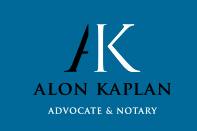
To form a private trust company, you need to understand Israeli Trust Law, focusing on creating trusts via Hekdesh Instruments. You’ll establish defined governance structures with trusted family members and guarantee compliance with regulatory applications and licensing by the Israel Securities Authority. Develop thorough internal policies outlining fiduciary responsibilities. Strategize for tax efficiency and create diversified investment portfolios. Regularly assess compliance and operational effectiveness to maintain long-term success. Continue exploring for a deeper understanding.
Key Takeaways
- Develop trust documents, including a Hekdesh Instrument, detailing purpose, duration, and asset distribution aligned with beneficiary interests.
- Obtain necessary licenses from regulatory bodies like the Israel Securities Authority, providing detailed financial and operational documentation.
- Establish a governance structure with a board and committees for oversight, including trusted family members and professional managers.
- Ensure compliance with legal, fiduciary, and financial obligations through regular audits and development of internal policies.
- Implement financial planning strategies, focusing on tax efficiency, risk management, and aligning investments with long-term family goals.
Legal and Structural Formation in Israel

When forming a private trust company in Israel, it’s essential to understand the legal framework that governs such entities, as outlined in the Israeli Trust Law. This law recognizes the establishment and administration of trusts, primarily through a trust instrument. This document, often referred to as a Hekdesh Instrument, is signed before a notary and details the trust’s purpose and duration. As a trustee, you’re responsible for managing and distributing assets according to the trust’s terms, ensuring adherence to the outlined responsibilities. The trustee must act in the best interest of the beneficiaries, who are defined in the trust documents. Trusts can be created via an *inter vivos* deed, will trust, or contractual agreement between settlor and trustee. In Israel, forming a private trust company can be quick and low-cost, similar to establishing private companies, with no requirement for personal appearance or notary involvement in the registration process. Additionally, resources like the Trust Estate Planning in Israel provide comprehensive guidance on the historical, cultural, and legislative contexts that can influence trust formation and management.
Navigating Regulatory Applications and Licensing in Israel
Although establishing a private trust company in Israel presents significant opportunities, maneuvering through the regulatory applications and licensing process requires a detailed understanding of the legal landscape. You’ll face regulatory challenges that necessitate obtaining specific licenses from key bodies like the Israel Securities Authority. The licensing process is intricate, requiring extensive applications with detailed documentation, including financial statements and operational plans. Nonprofit organizations (NGOs) in Israel, including those involved in trust law, are governed by a complex legal framework, emphasizing the importance of understanding applicable laws during the licensing process. These applications undergo thorough regulatory review to guarantee compliance with Israeli laws, and the licensing timeline can vary. Maintaining compliance involves adhering to financial services acts, client obligations, and confidentiality standards. You must also engage in continuous compliance monitoring through regular audits and inspections. Consulting with legal and financial experts can be invaluable in successfully maneuvering through these regulatory challenges. Given the extensive activity in Europe, collaborating with reputable banks and law firms can further enhance the service delivery for a private trust company.
Developing Governance and Management Structures

Establishing a private trust company in Israel requires not only traversing the regulatory landscape but also constructing robust governance and management structures. Start by determining the board composition, including trusted family members and advisors. This board oversees the PTC’s governance and administration. Establish committees with defined roles, such as a Distribution Committee to manage beneficiary distributions, and an Amendment Committee for trust structure modifications. Professional management guarantees effective operations, while family members remain involved in decisions, maintaining control. Advisory roles provide strategic guidance, supporting investment and administrative tasks. Implement internal policies, like governance policies outlining roles and responsibilities, to guarantee smooth operation. The concept of trusts involves legal relationships between the settlor and trustee, offering an organized method for estate planning. PTCs are often popular in offshore jurisdictions like the Cayman Islands due to their privacy benefits, though the same principles can apply when establishing one in Israel.
Complying With Operational and Legal Requirements
To guarantee compliance with operational and legal requirements when forming a private trust company, it’s crucial to navigate the complexities of state jurisdiction selection. Start by choosing a state with favorable legal frameworks, as this impacts licensing and regulatory obligations. You’ll need to establish clear compliance strategies, focusing on fiduciary responsibilities, which often require a licensed fiduciary to administer the trust. Create a thorough legal document detailing management, beneficiary names, and asset distribution plans. Confirm you meet situs requirements, as they differ across states and affect operational locations and costs. Develop policies for corporate governance and implement anti-money laundering programs. In Israel, the creation of trusts can be done by law, contract, will, or unilateral deed, providing flexibility and adaptability to specific circumstances. Licensed/Chartered private trust companies require application and annual renewal from state banking authority, ensuring that all regulatory requirements are adhered to. Regularly monitor compliance with state laws and prepare for regulatory examinations by maintaining accurate documentation and risk management strategies.
Financial Planning and Maintenance for Long-Term Success

When planning for the financial longevity of a private trust company, it’s essential to integrate thorough financial planning and maintenance strategies. Prioritize tax efficiency by adhering to Internal Revenue Code rules, which can benefit irrevocable trusts. Emphasize risk management through diversified portfolios, balancing concentrated family assets with dynamic investments. Align investment strategies with long-term family goals to guarantee sustainable wealth management, allowing for strategic decisions in maintaining family businesses or real estate holdings. Conduct regular portfolio reviews to adapt to changing family needs, guaranteeing continued alignment with objectives. Establish family governance structures and succession planning to maintain leadership continuity. Regular communication fosters trust and transparency, and it is important to share information with beneficiaries to ensure everyone is informed and aligned. Israel’s strong economy, particularly in IT sectors, offers attractive wealth planning arrangements that can motivate immigration, providing additional opportunities for wealth management. Develop partnerships with financial professionals to enhance management capabilities, maintaining adaptability in the face of evolving financial landscapes.
Frequently Asked Questions
What Is a Private Trust Company?
A private trust company is a specialized legal entity designed to serve as a trustee for family trusts, offering a tailored governance structure.
It provides the advantage of maintaining family control over trust administration, aligning management with family values. You can benefit from the flexibility in decision-making, personalized asset management, and wealth preservation across generations.
Typically used by high-net-worth families, these entities guarantee privacy and compliance within a structured legal framework.
How Does a Private Trust Company Differ From a Public Trust Company?
In the grand tapestry of financial institutions, private trust companies focus on managing wealth for a specific family or small group, while public trust companies serve a broader clientele.
Private trusts often enjoy more lenient regulations and personalized governance structures, tailored to meet the family’s needs.
Public trusts, however, adhere to stricter oversight and cater to diverse clients, requiring higher capital reserves.
Both structures offer unique advantages depending on your needs.
Who Can Benefit From Forming a Private Trust Company?
You can benefit from forming a private trust company if you’re part of a wealthy family seeking enhanced estate planning.
This structure provides tailored wealth management, offering control and privacy for complex family assets.
It’s advantageous for ultra-high net worth individuals, large families, and business owners, as it enables personalized management of finances.
The ability to address tax considerations and philanthropic goals makes it ideal for those with intricate financial needs.
What Are the Potential Tax Benefits of a Private Trust Company?
Imagine tax planning as a strategic chess game. You can use a private trust company to manage tax implications efficiently, providing potential advantages in estate planning.
By coordinating income tax planning and leveraging state tax benefits, you can reduce taxable income. Domesticating foreign trusts mitigates U.S. tax issues, while utilizing favorable trust laws increases flexibility.
These strategies, paired with limited reporting requirements, can greatly enhance your financial strategy.
How Long Does It Typically Take to Form a Private Trust Company?
Forming a private trust company typically takes about 90 days or more, depending on your specific formation timeline and regulatory requirements.
If you opt for an unlicensed company, the process is generally quicker, as it bypasses some regulatory hurdles.
However, obtaining a license introduces additional steps, including pre-file meetings and detailed business plans, which can extend the timeframe.
Make certain you comply with state-specific requirements to streamline the process efficiently.
Conclusion
By now, you’ve navigated the labyrinth of forming a private trust company in Israel, dutifully checking off each legal, structural, and regulatory requirement. Ironically, while the process is intricate and demanding, it ultimately paves the way for streamlined governance and management. Your attention to operational compliance and financial planning guarantees not just survival but long-term success. So, you’ve built a solid foundation, even if it felt complex—your diligence has set the stage for a prosperous future.

